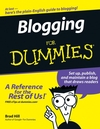As a class assignment for
Issues in American Schooling at Lesley University, a quartet of us have read
The Chldren are Watching: How the Media Teach About Diversity by Carlos E. Cortes.
I have attached to this post an outline of Part 4 of Cortes' text. This section focuses upon the role that teachers and schools can play in engaging mass media, whether entertainment or news. I will further the discussion with a series of images of Arabs/Arab-Americans in recent American entertainment media.
Mass Media Multicultural Textbooks are a Given!Schools Must Decide:
…if they will participate consciously
…how they will respondEducational Media and Mass Media either:
Challenge Each Other
Reinforce Each Other
One Addresses Topic, One Ignores TopicProposed Educator Paradigm:PremisesChildren are Exposed to Media
Media “Teaches” Children
Media Learning Affects School Learning
Educator Responses
Recognition
Attention (but responses will be diverse)
Exploration
...Ask students questions
...Discuss in class
...Give Assignments
Investigate (analyze in greater depth)
Areas of School EngagementEducator Self Assessment
Incorporate Student Media Learning
...Before a unit, ask students what they know and where they learned it from
Media as Curricular Resource
...External: Children consider outside media along with curriculum
...Internal: Use media examples in class
...Incorporated: For example, discuss role of media in historic event
Student Analytical Thinking – especially about outside media
Professional Development
...Media Literacy
...Media Multicultural Education
Working with Parents
...Advise how they can discuss outside media with kids
Working with Media
...Write media makers about their content
...Invite media makers to classroom
Combating Stereotypes
Teach Distinction Between Generalizations and Stereotypes
Students to Apply and Test Distinctions--Selectivity
--Frequency
--Variety
--Placement on Timeline
.......Reality
.......Seminal Treatment
.......Widespread Imitation –Audience expectations considered
.......Humor, Caricature - Stereotype Manipulation
-------Mindless, Careless, Exploitative Repetition
Links:
http://groups.google.com/group/rec.arts.tv/browse_thread/thread/8c682326f7d72e9c/951c130aafe34f3d#951c130aafe34f3d34f3d














 4 Second Frenzy
4 Second Frenzy



